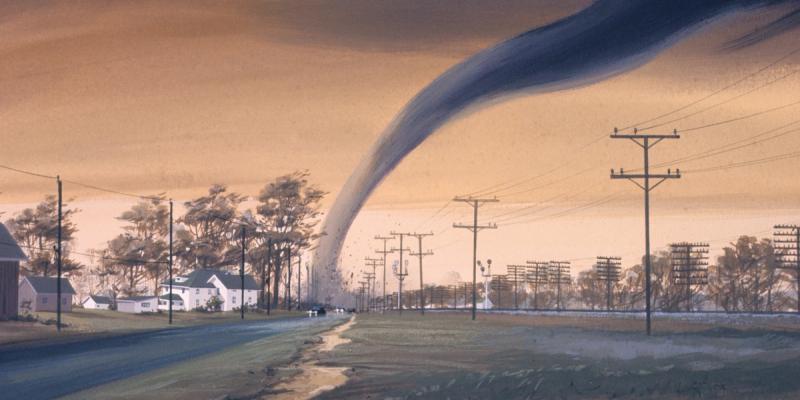
Emergency Preparedness
Tornado Awareness
Knowing what to do when you see a tornado, or when you hear a tornado warning, can help protect you and your family.
Tornado Preparedness: Protecting You and Your Family
Understanding what to do when you see a tornado or hear a tornado warning can make all the difference in keeping you and your family safe. Tornadoes bring extreme winds and dangerous flying debris, and the aftermath can present additional risks. While we can't prevent tornadoes, there are steps you can take to stay safe.
Stay Informed: Storm Watches and Warnings
When thunderstorms are in your area, keep your radio or TV on to receive updates from local authorities. Listen for announcements of tornado watches and warnings.
Know Your Local Warning System
Familiarize yourself with your county's tornado warning system. Many tornado-prone areas use sirens to alert residents. Make sure you understand the difference between a tornado watch and a tornado warning.
Tornado Watch vs. Tornado Warning
Tornado Watch
A tornado watch is issued when weather conditions suggest tornadoes may form, such as during a severe thunderstorm.
During a tornado watch:
- Stay tuned to local radio, TV, or NOAA Weather Radio for updates.
- Monitor the weather and be ready to take shelter if conditions worsen.
Tornado Warning
A tornado warning means a tornado has been sighted or detected by radar.
You should seek shelter immediately.
Thunderstorms and Tornadoes
Since tornadoes often form during thunderstorms, it's important to monitor weather conditions when a thunderstorm is active.
- Severe Thunderstorm Watch: Severe storms are possible.
- Severe Thunderstorm Warning: Severe storms are currently happening.
Keep fresh batteries and a battery-powered radio or TV handy, as power outages can occur when you need weather updates the most.
Important Safety Measures
Take time to create a tornado emergency plan with your family:
- Sketch a floor plan or walk through your home, identifying safe areas to take shelter.
- Show a second way out of each room, and note where safety equipment like rope ladders are located.
- Ensure everyone knows how to recognize the tornado sirens or warning systems in your area.
- Mark where your first-aid kit, fire extinguishers, and utility shut-offs are located.
- Teach your family how to administer basic first aid, use a fire extinguisher, and turn off water, gas, and electricity.
- Learn your child’s school’s emergency dismissal policy and make sure they know:
- What a tornado is
- What tornado watches and warnings mean
- Which county or parish they live in, as warnings are issued by location
- How to take shelter at home or school
Extra Precautions for People with Special Needs
- Write down your specific needs, medications, and any limitations. Keep this list with you at all times.
- Arrange with someone nearby—like a friend, neighbor, or co-worker—to assist you in an emergency and provide them with a copy of your list and possibly a spare key to your home.
- Stay aware of weather conditions through accessible means like closed captioning, radio bulletins, or call-in weather lines.
Practice Your Emergency Plan
Regularly conduct drills and ask questions to ensure everyone in your family knows how to identify hazardous weather and take shelter.
Writing Down Important Information
Keep a list of important contacts and information handy:
- Emergency numbers (police, fire, paramedics, medical centers)
- Contact details for insurance agents, including policy numbers
- Utility companies (electric, gas, water)
- Neighbors’ contact information
- Landlord or property manager’s contact information
- Important medical details (allergies, medications, medical history)
- Details of your vehicles (year, model, license, ID numbers)
- Bank contact information and account numbers
- Emergency broadcast radio and TV stations to tune into
By staying prepared and informed, you can reduce risks and protect yourself and your loved ones when a tornado strikes.
Here to Help
Our team is here to answer your questions and provide the support you need. If you need help regarding tornado awareness, please contact us.